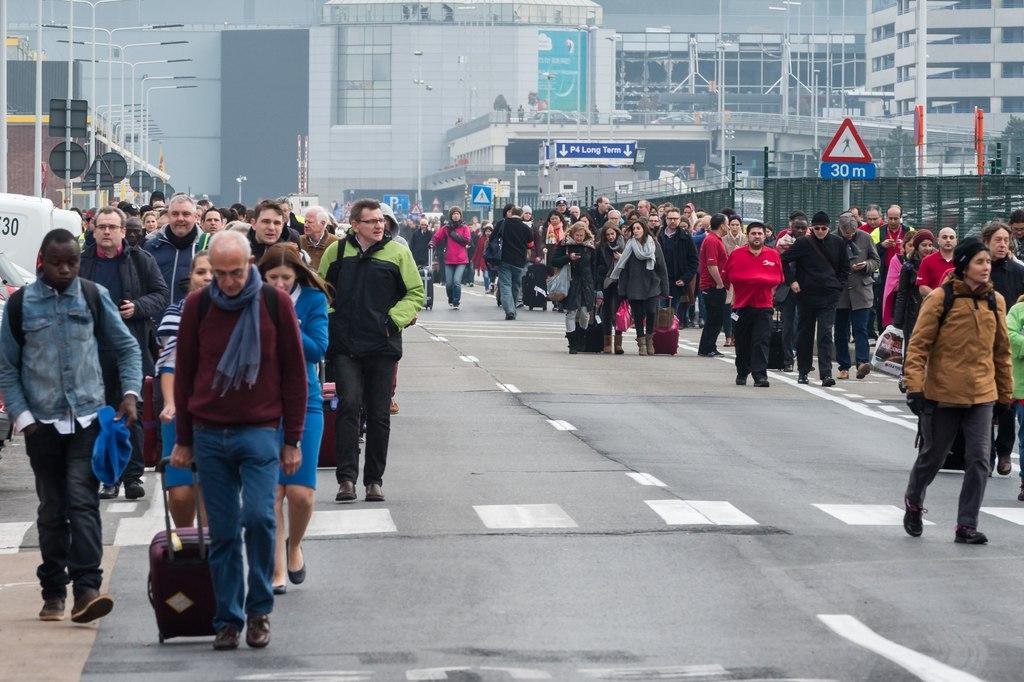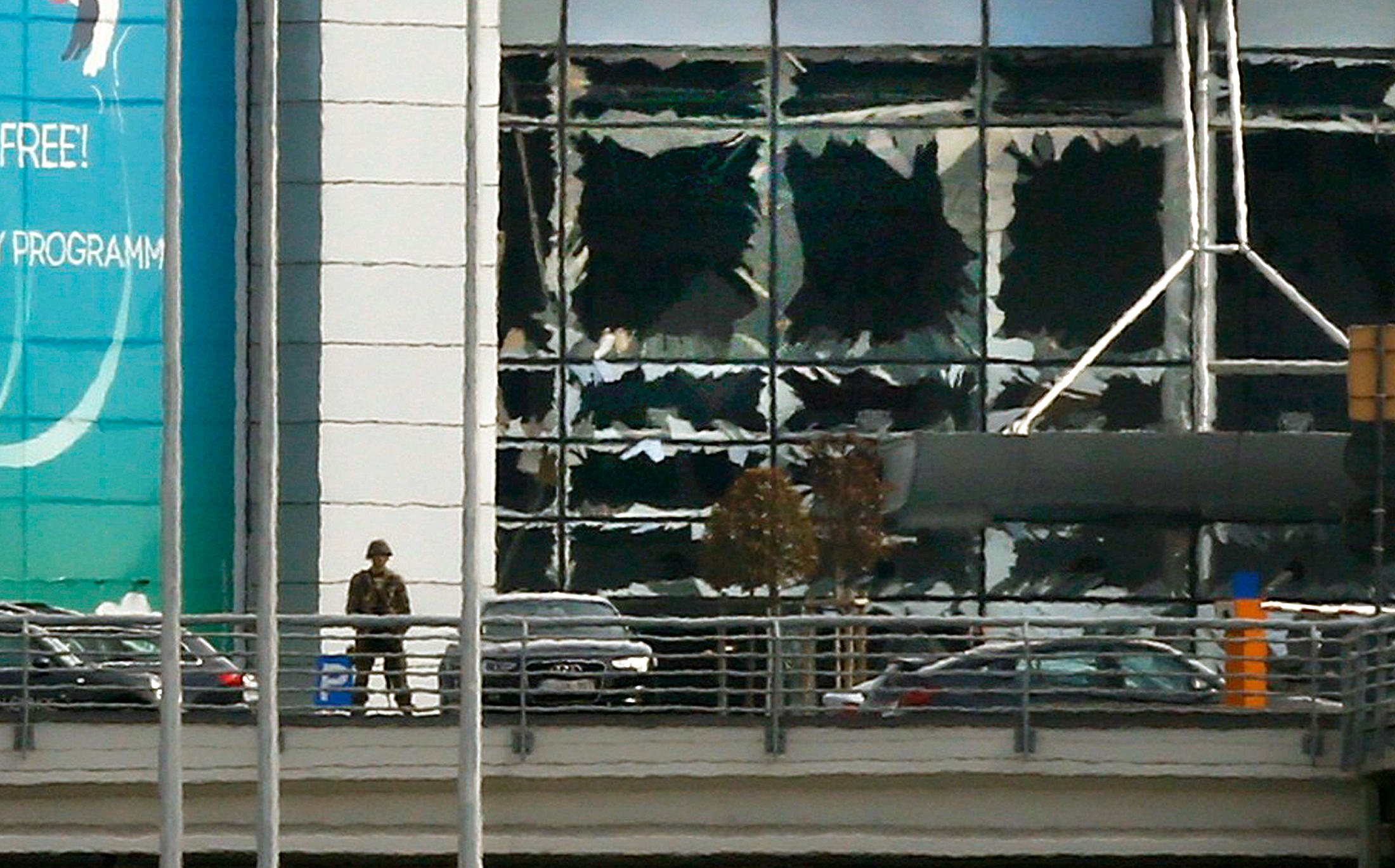Security measures tightened in Switzerland

Swiss airports, train stations and border posts have increased security after attacks on Brussels’ airport and a rush-hour metro train killed more than 30 people and injured around 200. The threat level in Switzerland, which had already been raised following the attacks in Paris in November, has not changed.
In Zurich and Geneva, cantonal police increased their presence at the airports; Bern and Basel said they were also constantly monitoring the security situation. All airports were in close contact with other police forces and the government.
The internal task force of the Federal Office of Police (FEDPOL) said it was cooperating closely with the police of the airport cantons. Cantonal police forces are responsible for concrete security measures but no details have been given.
FEDPOL also said it was talking to Belgian investigators to try to ascertain whether there was a Swiss connection to the attacks.
Around a dozen EasyJet and Brussels Airlines flights were cancelled between Geneva and the Belgian capital on Tuesday. Two planes from Geneva landed just before the explosions.

More
Swiss president extends sympathy to Brussels victims
Swiss International Air Lines, which has three flights between Zurich and Brussels, cancelled all flights to Brussels. One plane already in the air was diverted to Düsseldorf airport in Germany.
Brussels airport will remain closed on Wednesday, and the first flight from Zurich to Brussels on Thursday has also been cancelled.
Swiss International Air Lines said passengers whose flights had been affected by the attacks could re-book for free until March 28. They could either postpone their flights or be compensated for the price of the ticket.
Threat level
There is also a greater police presence at railway stations and international buildings in Geneva – for example those belonging to the United Nations – although the city’s threat level has not risen.
The Federal Intelligence Service (FIS) maintained that Switzerland was not a primary target of Islamic-motivated attackers, but as a Western country, Switzerland remained a potential target.
The FIS said the Brussels attacks – as well as those in Paris in November – could inspire radicalised people in Switzerland to copy them. Switzerland could also serve as a logistical base or transit country for terrorists, it said.
Swiss Federal Railways said trains were leaving Switzerland for Brussels, since they were stopping at other stations along the way, but they weren’t sure how far the trains would get in Belgium. Delays and train cancellations were expected in Belgium.
The Swiss foreign ministry has set up a crisis cell in coordination with the embassy in Brussels and consulate in The Hague.
Regarding travel advice to Belgium, the foreign ministry told visitors to its website to consult the instructions given by the Belgian crisis centre. Here are some FAQs released by the crisis centreExternal link in English.
Lucky escape
There have been no reported Swiss deaths or injuries. However, two groups of Swiss students had lucky escapes.
A group from Fribourg was travelling on the same underground line that was hit by an explosion, but they managed to return to their hotel. Another group, from canton Vaud, was in the museum of art when the attacks were carried out. Both groups have cut short their visit to Brussels.

In compliance with the JTI standards
More: SWI swissinfo.ch certified by the Journalism Trust Initiative







You can find an overview of ongoing debates with our journalists here . Please join us!
If you want to start a conversation about a topic raised in this article or want to report factual errors, email us at english@swissinfo.ch.